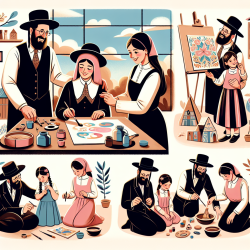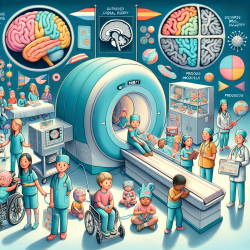As a practitioner in the field of speech-language pathology, it is essential to understand the diverse cultural contexts of the families you serve. A recent study titled "Ultra-Orthodox Parents’ Perceptions of Arts Therapies for Their Children" provides valuable insights into how cultural nuances can shape therapeutic outcomes. This blog aims to distill the key findings of this study and offer practical recommendations to enhance your practice.
Understanding Cultural Context
The study involved 17 Ultra-Orthodox parents whose children were receiving various forms of arts therapies, including art therapy, dance/movement therapy, music therapy, psychodrama, and bibliotherapy. The findings highlighted that Ultra-Orthodox parents' experiences are significantly influenced by socio-cultural factors such as stigma, educational system interactions, and intercultural differences between therapists and clients.
Key Findings and Practical Applications
- Parental Involvement: Most parents recognized the importance of their relationship with the therapist. Practitioners should strive to engage parents actively in the therapeutic process, providing them with clear explanations and practical tools to support their child's therapy at home.
- Managing Expectations: Parents often had purpose-oriented attitudes, expecting quick and visible results. It's crucial to set realistic expectations by educating parents about the processual nature of therapy and the benefits of gradual progress.
- Addressing Stigma: Stigma around therapy was a common concern. Practitioners should create a safe and confidential environment, reassuring parents that therapy is a positive step towards their child's well-being.
- Intercultural Sensitivity: Parents preferred therapists who understood their cultural and religious background. If you are not from the same cultural background, consider seeking cultural supervision or guidance to better understand and respect the family's values and norms.
- Educational System Interaction: The relationship between the therapist and the educational system was complex but crucial. Facilitating open communication between the therapist, parents, and educational staff can optimize therapeutic outcomes.
Conclusion
Understanding the cultural context and perceptions of Ultra-Orthodox parents can significantly enhance the effectiveness of arts therapies. By addressing stigma, managing expectations, and fostering intercultural sensitivity, practitioners can create a more supportive and effective therapeutic environment.
To read the original research paper, please follow this link: Ultra-Orthodox Parents’ Perceptions of Arts Therapies for Their Children.










